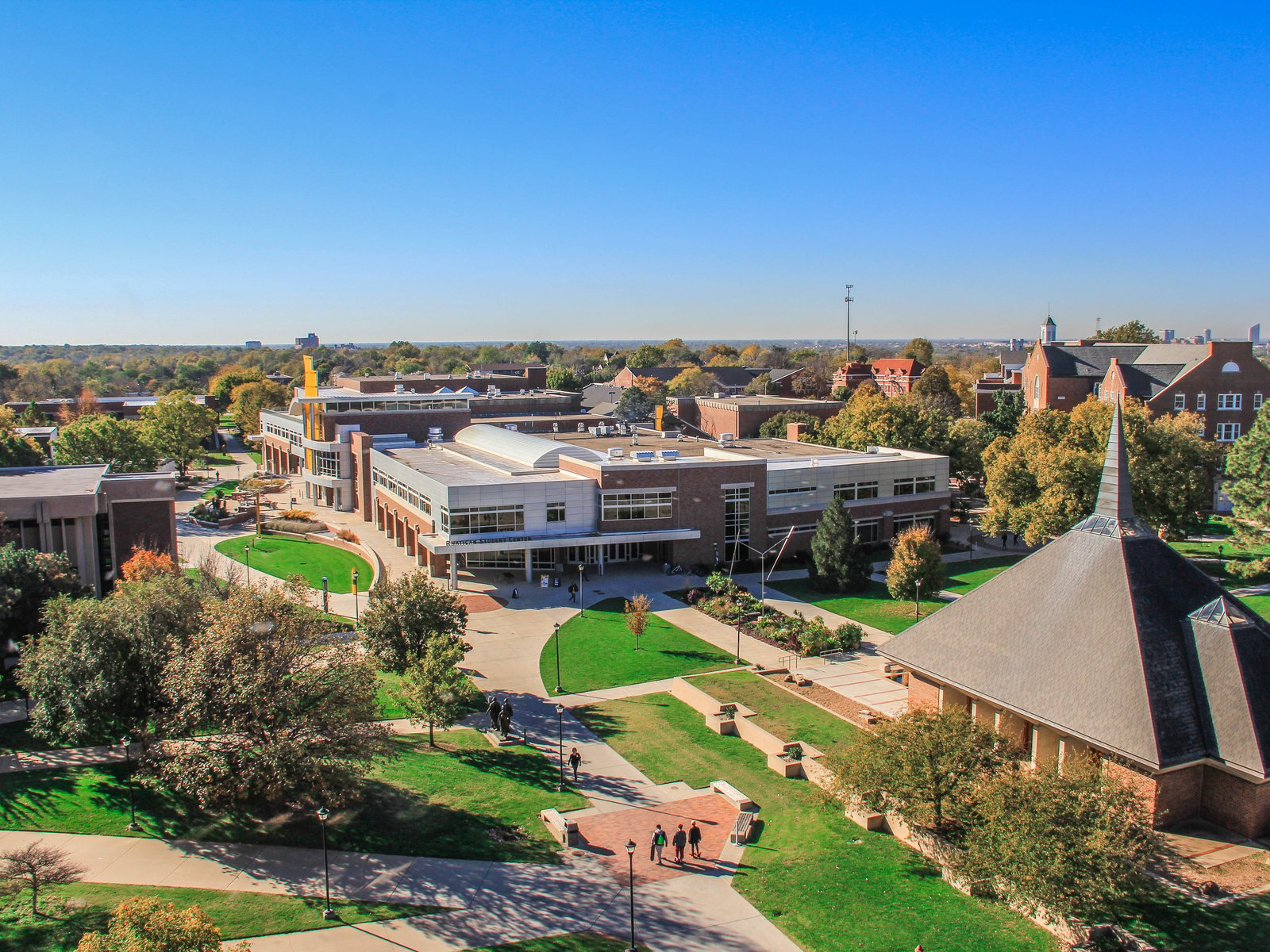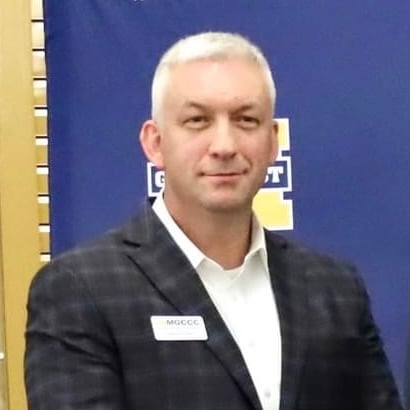The collaborative project aims to broaden the participation of two-year institutions of higher education in emerging technology programs by increasing the capacity and infrastructure to grow and sustain strong regional partnerships at the following institutions: William Rainey Harper College (IL), Ivy Tech Community College (IN), Mississippi Gulf Coast Community College (MS), Washburn University Institute of Technology (KS), and WSU Tech (KS). Over its three-year duration, this project will fund the development, implementation, and evaluation of each institution’s new capacity to meaningfully engage in cross-sector partnerships to advance efforts in workforce development.
The collaborating institutions (the cohort) will engage employers in ways that have not been done before at their institutions by implementing the Business and Industry Leadership Team (BILT) advisory council model. This model is substantially different from the traditional advisory committees currently used at the colleges that generally meet twice per year, lack employer involvement, and are not considering future labor market needs. In the BILT, regional employers have co-leadership roles and collaborate with faculty to develop and update course content by sharing the knowledge and skills needed for the workforce 12 to 36 months into the future. This deeper level of engagement will significantly impact the quality and relevancy of academic programs and will make students better prepared for the workforce.
Building relationships with regional business leaders will ensure classroom content is current and create opportunities for student internships, apprenticeships, mentorship, and guest speakers. Institutions will implement the BILT process using publicly available BILT resources and a BILT consultant for the regional-specific industry partnerships being targeted. The colleges will share lessons learned, best practices, progress on individual institutional plans, and solutions to barriers to implementing college-wide change.
The overall objective of this project is to build institutional capacity to grow external partnerships for workforce development programs to make them more responsive to regional workforce needs. Goals include developing, implementing, and evaluating an institution-specific, replicable, scalable plan to transform the current traditional advisory committee process into the BILT model to create meaningful engagement with industry partners and identifying recruitment and outreach strategies that focus on ensuring representation of underrepresented individuals and businesses on the BILT teams. Institutional activities vary by institution; however, shared activities include implementing the BILT advisory council model for at least one academic program, using publicly available BILT resources and a BILT consultant for targeting specific regional industries and employers, and developing and implementing institution-specific strategic plans to build capacity for growing and sustaining regional partnerships within its respective regional innovation ecosystem.
Collaborative activities include creating a framework for implementing BILT at community and technical colleges that is replicable and scalable; educating faculty and employers on the value of the BILT for students, programs, and the regional economy; establishing a schedule of virtual monthly meetings; creating a community of practice to share best practices, progress on individual institutional plans, challenges faced, and solutions designed to address barriers to implementing institutional change; creating a collaboration platform for discussions and document storage; convening an Administrators Working Group comprised of PIs and co-PIs to communicate the status of cohort progress and ensure all deliverables are on target; and planning an annual in-person cohort workshop adjacent to the annual Workforce Development Institute conference hosted by the American Association of Community Colleges. A third-party evaluator will assess the outcomes and impacts of the cohort’s project.
The broader impacts of this project will be increasing partnerships between academia, industry, and others through the BILT which will lead to strengthening and deepening employer engagement and enabling community and technical colleges to contribute to and become equitable partners in the regional innovation ecosystem. This award reflects NSF's statutory mission and has been deemed worthy of support through evaluation using the Foundation's intellectual merit and broader impacts review criteria.
Ivy Tech Community College of Indiana
Ivy Tech Community College seeks to utilize the NSF EPIIC award to establish a Business & Industry Leadership Team (BILT) within its Advanced Automation and Robotics Technology and Industrial Technology programs. This collaboration between industry partners and faculty will ensure timely updates on technological advancements and workplace changes, enabling the programs to better anticipate future workforce needs and proactively adjust curricula. Additionally, the initiative will develop career pathways that include both general STEM courses and industry-specific coursework, complemented by industry visits that offer hands-on learning experiences for students in each career path. The program will also provide valuable information for K-14 schools to guide students in their career planning.
Mississippi Gulf Coast Community College
Mississippi Gulf Coast Community College is leveraging its GRIP EPIIC award to deepen employer engagement and align academic programs with the region’s growing workforce needs. By implementing the Business and Industry Leadership Team (BILT) model, MGCCC will ensure that local industry leaders help shape curriculum content, anticipate future labor demands, and co-lead workforce development strategies. These efforts will expand opportunities for student internships, apprenticeships, and real-time career alignment in Mississippi’s emerging tech and manufacturing sectors.
Washburn University Institute of Technology
Washburn Tech is using its EPIIC GRIP grant to become a more integral part of Northeast Kansas’s manufacturing ecosystem by embedding regional employers directly into program development through the BILT advisory model. This employer co-leadership approach will enhance the college’s responsiveness to labor market trends and produce work-ready graduates equipped with in-demand skills. The initiative also funds a work-based learning coordinator to expand partnerships and boost student career pathways in cutting-edge technologies.
Wichita State University
WSU Tech is participating in the GRIP cohort to strengthen industry partnerships and modernize workforce training programs across the Wichita region. By adopting the BILT model, WSU Tech aims to increase industry co-leadership in curriculum design, enhance faculty-industry collaboration, and develop strategic plans to scale these partnerships long term. These efforts will reinforce the college’s role in advancing regional economic growth and cultivating a more diverse and future-ready workforce.
William Rainey Harper College
The NSF EPIIC award allows William Rainey Harper College (Harper) to implement strategic and thoughtful employer engagement and workforce development practices. With the support of a proactive cohort, Harper aims to create a scalable and replicable plan for transitioning academic programs from traditional advisory models to the BILT (Business and Industry Leadership Team) framework. The project team will leverage insights gained from implementing BILT to establish best practices, training, and processes, setting a new standard for the College. Harper’s EPIIC award specifically supports the creation of a Semiconductor Repair Technician program, supporting the “Manufacturing Corridor” of Chicago in implementing semiconductor manufacturing in response to the CHIPS Act of 2022. By fostering deeper engagement with employer partners in curriculum development, Harper will not only cultivate a highly qualified workforce to meet regional demand for innovative technologies, but will also create valuable experiential learning opportunities for students through internships, apprenticeships, and more. These opportunities will be curated through BILT meetings, with employer partners recognizing community colleges as effective collaborators, thus establishing a foundation of trust. Additionally, Harper plans to implement a centralized system for tracking employer outreach and engagement using Customer Relationship Management (CRM) software. This system will streamline communication efforts while enabling strategic analysis of data to optimize employer engagement and resource allocation.


.png/logo)










